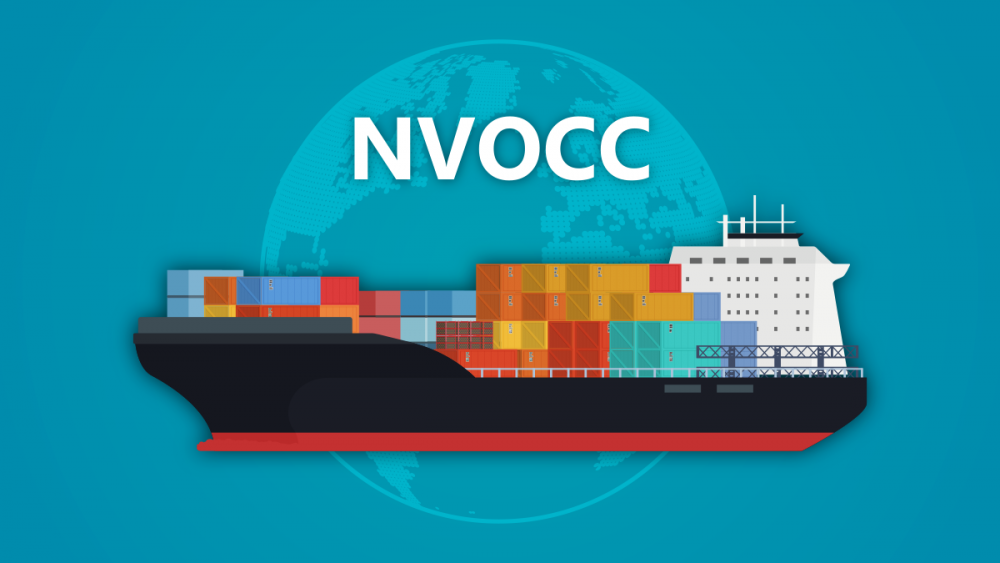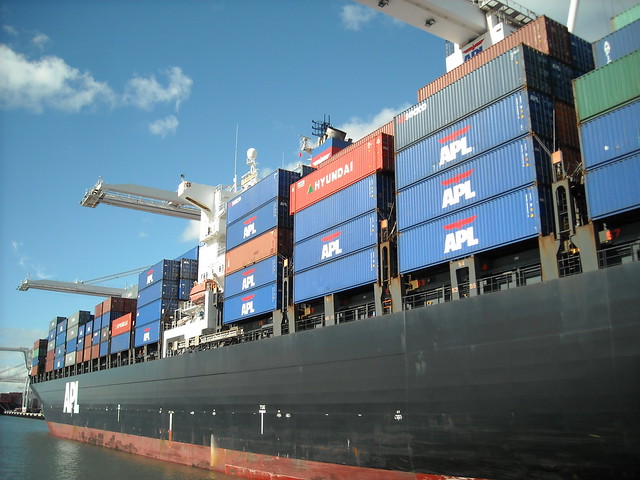2024/10/25
Navigating the world of international logistics can feel like sailing through a sea of jargon, especially when it comes to understanding terms like NVOCC and shipping line. Both play critical roles in global trade, yet they offer distinct services and operate differently. So, what sets them apart? Knowing the difference between an NVOCC and a shipping line can help businesses optimize their shipping strategies and make more informed logistics choices.
Importance of Understanding NVOCC and Shipping Line in Logistics
If you’re shipping products internationally, you’ll likely encounter both NVOCCs and shipping lines. Each one can significantly impact how your cargo moves, the cost of shipping, and even how smooth the overall experience is.
Overview of International Shipping
International shipping is a massive industry, connecting businesses across borders. The main players here are shipping lines, which operate the vessels, and NVOCCs, which act as intermediaries, providing more flexible shipping options for businesses of all sizes.
The term NVOCC stands for Non-Vessel Operating Common Carrier. This might sound complex, but simply put, an NVOCC is a company that organizes shipments without owning the ships. Instead, they lease cargo space from shipping lines and offer those spaces to businesses.
Definition of NVOCC (Non-Vessel Operating Common Carrier)
An NVOCC operates like a shipping agent, booking cargo space on vessels owned by shipping lines. They take on many of the responsibilities of a carrier, except for physically transporting goods across the ocean.
Key Roles and Responsibilities of an NVOCC
NVOCCs manage a range of logistics tasks to make shipping easier for businesses.
Container Management and Leasing
NVOCC services often lease and manage containers, making it possible for smaller shipments to share container space and save on costs.
Booking Cargo Space with Shipping Lines
Instead of owning vessels, NVOCCs buy cargo space from shipping lines and resell it, allowing them to offer competitive shipping rates.
Issuing House Bills of Lading
NVOCCs issue a House Bill of Lading to their customers, acting as an official receipt for the goods being shipped. This bill gives the NVOCC legal control over the cargo for the duration of the shipment.

A shipping line is a company that owns, operates, and manages vessels used to transport cargo across oceans. These companies have vast networks and fleets, making them responsible for the actual movement of goods.
Definition of a Shipping Line
Shipping lines are the backbone of maritime transport. They directly handle the ships and crew needed to physically move goods from one port to another.
Key Roles and Responsibilities of a Shipping Line
Shipping lines have a much different focus than NVOCCs since they own the vessels and operate globally.
Owning and Operating Vessels
Unlike NVOCCs, shipping lines own the ships, hire crew members, and maintain the fleets that transport cargo internationally.
Transporting Cargo Across International Waters
Shipping lines provide the essential infrastructure to move goods across continents, ensuring the flow of trade.
Issuing Master Bills of Lading
Shipping lines issue the Master Bill of Lading, which confirms receipt of goods on their vessel and outlines the shipping contract.

The main difference between an NVOCC and a shipping line lies in their roles, services, and responsibilities.
Both offer unique services, but their scope and focus vary.
NVOCC’s Focus on Consolidation and Cargo Management
NVOCCs consolidate smaller shipments into larger ones, making shipping more accessible and flexible for smaller businesses.
Shipping Line’s Focus on Transportation and Vessel Operation
Shipping lines concentrate on moving cargo on their own vessels, managing everything from scheduling to vessel maintenance.
Legal responsibilities and types of documentation differ significantly.
House Bill of Lading vs. Master Bill of Lading
An NVOCC issues a House Bill of Lading, while a shipping line issues a Master Bill of Lading, establishing different layers of legal control.
Liability in Case of Cargo Damage or Loss
In cases of damage or loss, liability may rest differently depending on whether you’re working with an NVOCC or directly with a shipping line.
| Feature | NVOCC | Shipping Line |
| Role | Consolidates smaller shipments | Operates vessels for direct shipping |
| Services | Focuses on cargo management and consolidation | Focuses on transportation and vessel operations |
| Legal Responsibility | Issues House Bill of Lading | Issues Master Bill of Lading |
| Liability | May have different liability standards | Direct liability for cargo loss or damage |
Although they serve different purposes, NVOCCs and shipping lines often collaborate.
Booking and Managing Cargo Space
NVOCCs book space with shipping lines, helping them accommodate clients’ shipping needs without owning the ships.
The Role of Shipping Lines in Transporting Cargo for NVOCCs
Shipping lines move the goods for NVOCCs, which helps maintain the flow of international trade.
Coordination Between NVOCCs and Shipping Lines for Smooth Operations
By working together, they streamline the process, allowing businesses to transport goods seamlessly.
Choosing an NVOCC comes with both benefits and drawbacks.
Benefits of Choosing an NVOCC for Cargo
Flexibility in Container Space and Booking
NVOCCs offer flexible container space options, ideal for smaller shipments that don’t fill a full container.
Customization of Services for Small Shippers
NVOCCs can customize services, which is beneficial for small businesses with unique shipping needs.
Drawbacks of Using an NVOCC
Higher Costs Compared to Direct Shipping Line
Using an NVOCC can be more expensive due to added intermediary costs.
Possible Delays in Shipping
Because NVOCCs rely on shipping lines, delays may occur depending on the shipping line’s schedule.
Direct shipping with a shipping line has its own pros and cons.
Benefits of Choosing a Shipping Line Directly
Cost-Effectiveness for Large Shipments
Shipping lines offer cost savings for bulk shipments, making them more economical for large businesses.
Access to Extensive Shipping Routes
Shipping lines have established routes, providing reliable access to multiple global ports.
Drawbacks of Using a Shipping Line
Limited Customization for Small Shippers
Small shippers may find limited customization when working directly with a large shipping line.
Complex Documentation and Booking Process
Direct booking with a shipping line may require more extensive documentation.
An NVOCC is ideal when you need flexibility or when you’re shipping smaller loads.
Ideal Scenarios for Selecting an NVOCC
NVOCCs work best for businesses needing customized services or consolidation of smaller shipments.
Tips for Small and Medium-Sized Businesses
Small businesses may benefit more from an NVOCC’s tailored services.
Shipping lines are optimal for bulk and repetitive shipments.
Ideal Scenarios for Selecting a Shipping Line
Large businesses benefit from shipping lines for cost and efficiency in bulk shipments.
Tips for Large Businesses and Bulk Shippers
Companies shipping large quantities can save by booking directly with a shipping line.
Conclusion
In summary, while NVOCCs and shipping lines play distinct roles in shipping, they often complement each other. For businesses, understanding these differences can lead to better logistics strategies and potentially lower shipping costs.